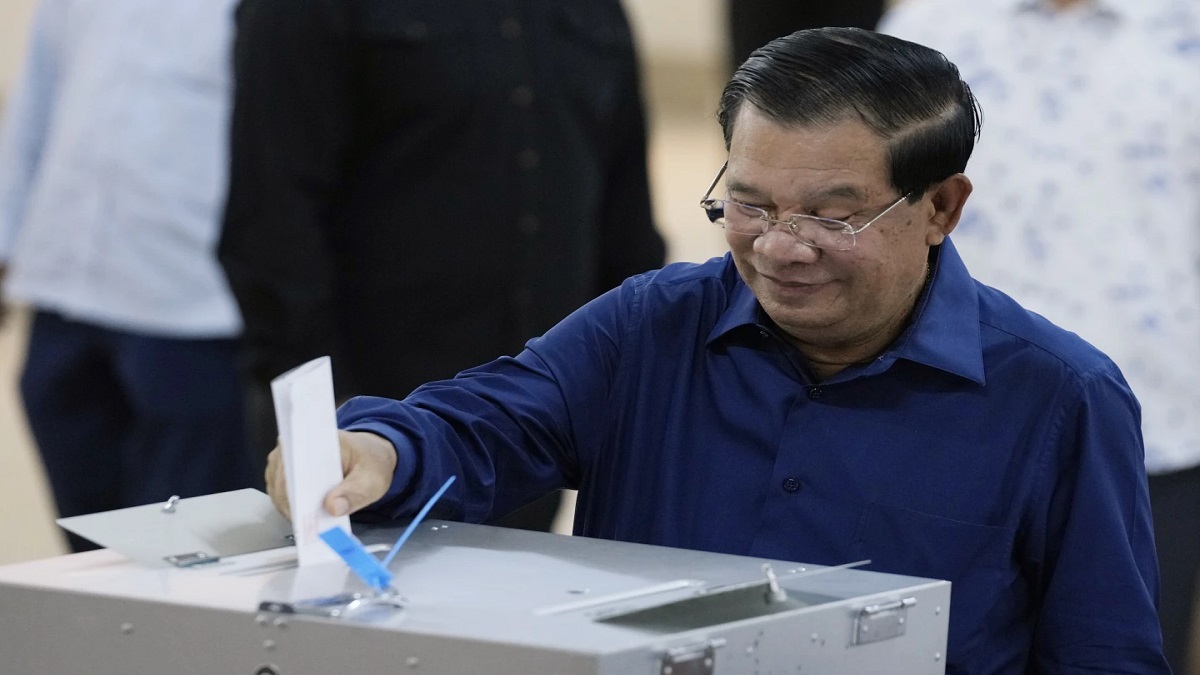In a one-sided general election that is being called a 'farce of democracy', Prime Minister Hun Sen is set to return to power with a landslide victory that was assured after the reported suppression of the opposition party and its leaders.
In his Telegram channel on Sunday, Hun Sen showed unofficial results depicting his Cambodian People’s Party winning 120 out of 125 seats, while the remaining seats went to the royalist FUNCINPEC party won five seats. Citing CPP spokesperson Sok Eysan, AP reported that the party captured 80% of the total voter turnout.
FUNCINPEC is a French acronym for the National Front for an Independent, Neutral and Cooperative Cambodia. It's leader, later King Norodom Sihanouk, defeated CPP in the 1993 elections, but has now become a tamed opposition force.
The opposition Cambodian National Rescue Party (CNRP) was barred from the election on a technicality issue by the National Election Committee, prompting Western countries to remark that the election were far from being free and fair. Human Rights Watch said the “election bears little resemblance to an actual democratic process."
Discontent after the removal of the opposition was systematically controlled by Hun Sen's government through careful messaging and talks of a new national project, said one observer.
Hun Sen is the longest-serving leader in Asia at 38 years, and has reportedly consolidated power through strong-arm tactics. The 70-year-old leader is likely the hand over the premiership to his oldest sun, Hun Manet, in the first month after the elections.
Hun Manet currently serves as the Chief of the Cambodian military and completed his education at universities in New York and Britain. Policies under his reign are unlikely to change from his father's gradual shift to China in recent years, say observers.
"I think they will probably be working closely together and I don’t think that there is a big difference in their political outlook, including foreign policy," said Astrid Norén-Nilsson, a Cambodia expert at Sweden’s Lund University.
Hun Sen's reputation as a sometimes ruthless politician was marked by a drop in his party's performance in the 2013 elections, when the CNRP increased its vote share. Subsequently, Hun Sen targeted opposition leaders through sympathetic courts and the party was eventually dissolved after the 2017 elections, where it performed well.
(with agency inputs)

